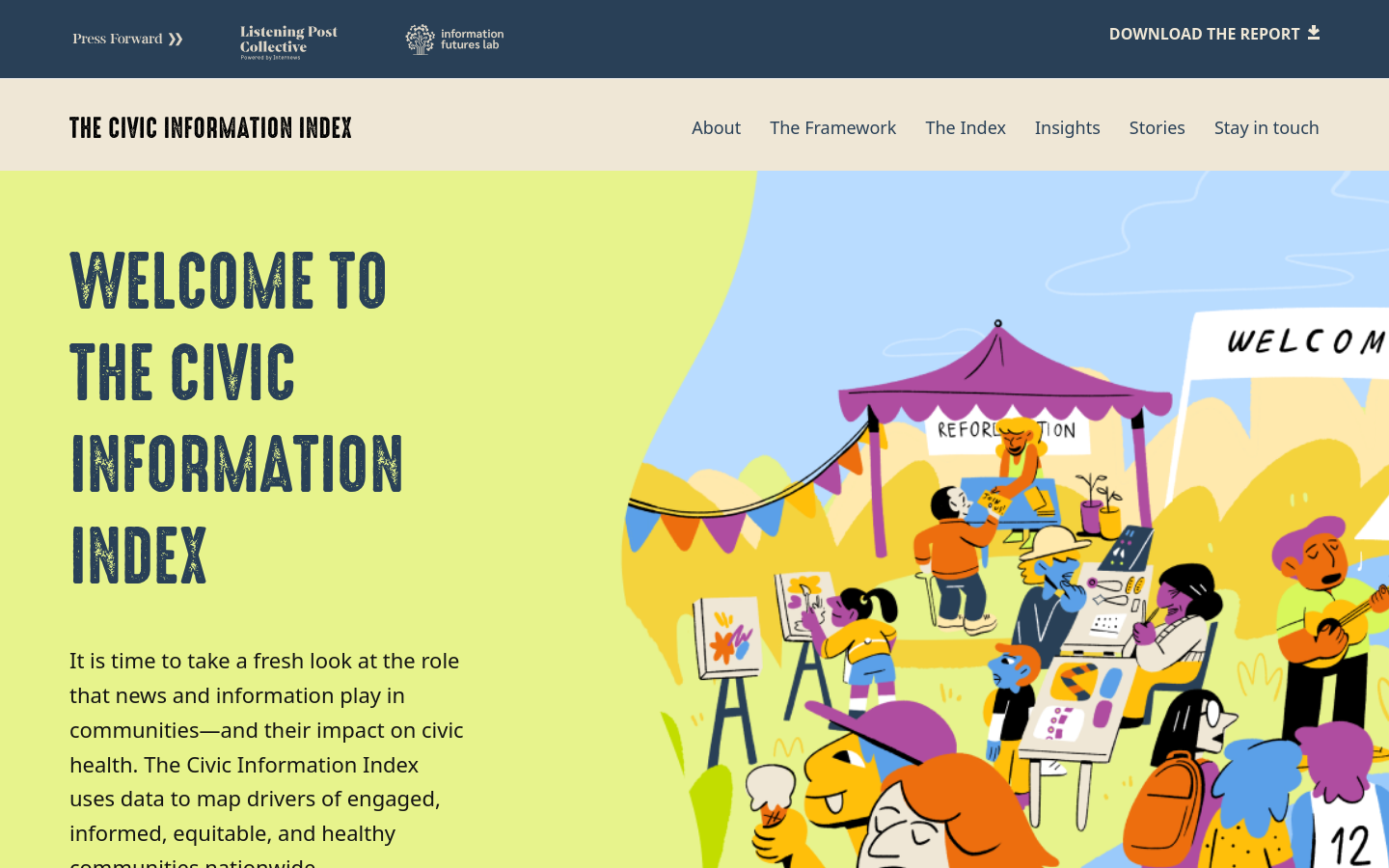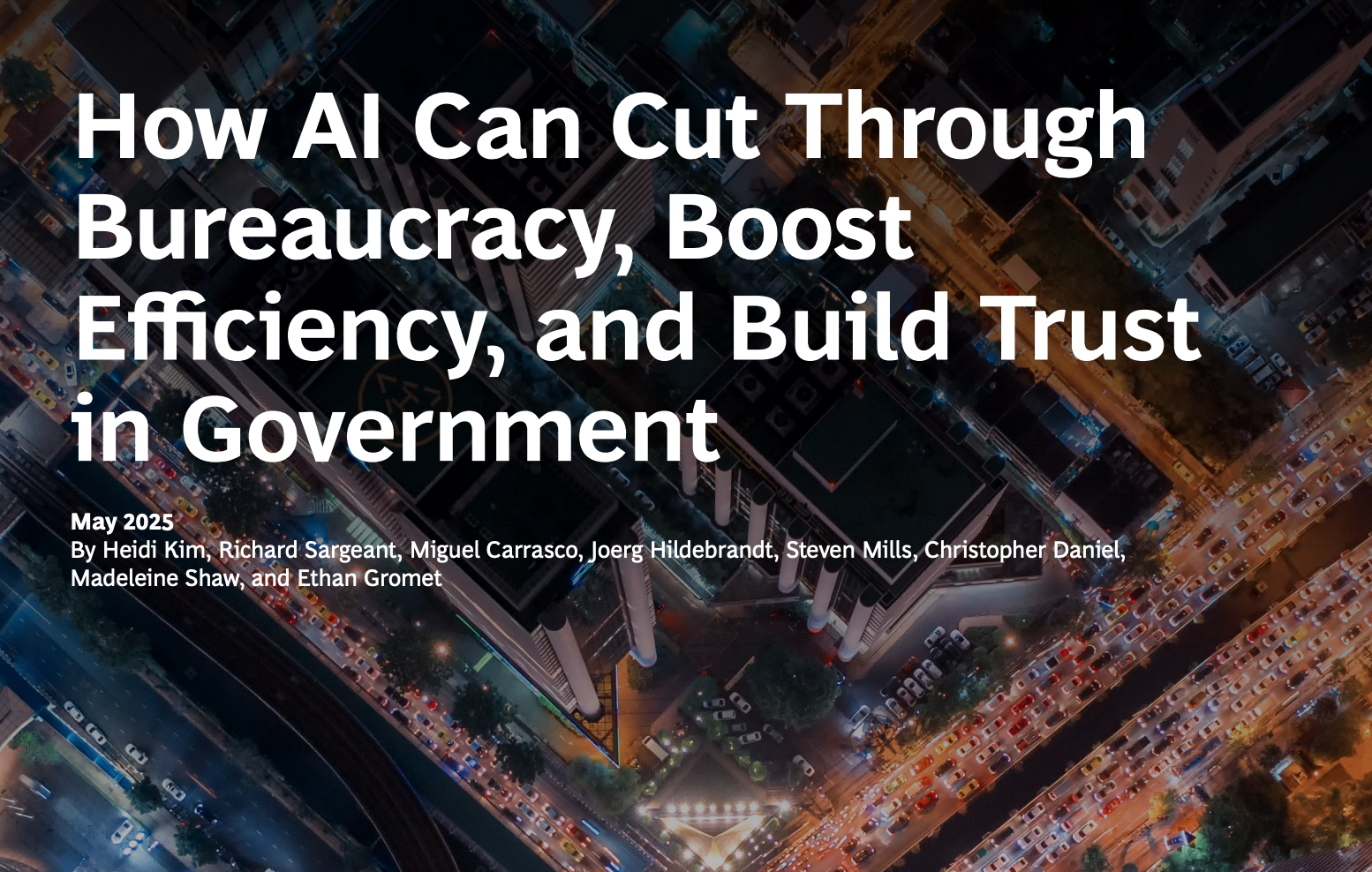Civic Tech Field Guide
Sharing knowledge and productively growing the fieldTag: Format > reports - (119)
Showing 119 Results

Consult Evaluation: Scottish Government’s Non-surgical cosmetic procedures consultation
10 Downing Street"Consult was generally good at identifying the themes in a given consultation response."

What Could BG Be
Bowling Green, KentuckyEngagement project with the city of Bowling Green, Kentucky

Civic Tech Project & Community Handbook
Taiwan (T'ai-wan)From Taiwan’s g0v Community to the World: The Collaborative Wisdom of Digital Citizens

Tackling civic participation challenges with emerging technologies
OECD, Rue André Pascal, Paris, FranceThis paper offers a comprehensive examination of the role emerging digital technologies can play in improving citizen participation.

Analysis of the digital democracy ecosystem
Johannesburg, South Africaa comprehensive analysis of the digital democracy ecosystem across six regions: East Asia, Eastern Europe & Central Asia, Latin America & the Caribbean, the Middle East & North Africa (MENA), Sub-Saharan Africa, and South Asia.

Civic Information Index
Internews Network, 15th Street Northwest, Washington, DC, USAThe Civic Information Index uses data to map drivers of engaged, informed, equitable, and healthy communities nationwide.

Scanning the Horizon
GlobalThe report serves as an entry point to this ‘forecasting’ stream of work that organizations working in the digital rights ecosystem often overlook, especially when resources are scarce, and they are focused on current challenges and ongoing projects.

The 2022 Ranking Digital Rights Telco Giants Scorecard
740 15th Street, N.W., Suite 900 Washington, DC 20005Ranking Digital Rights's inaugural Telco Giants Scorecard reveals that telecom companies, despite being gatekeepers of the internet for most of the world, are less transparent overall and more susceptible to government demands than their Big Tech peers.

Ever wonder, “How can civic tech help improve government service delivery?” If so, check out this new research from the Canadian Digital Service! It includes 5 case studies of partnerships between the Canadian government and civic tech groups, plus tools to assess if civic tech might be a good partner for a government initiative. Find it here: https://digital.canada.ca/2025/01/23/how-can-civic-tech-help-improve-government-service-delivery/

A report by the Royal Society on the impact of the internet on our information environment, and on misinformation relating to scientific issues

How can we ensure more inclusive and responsible AI so that diverse harms can be foreseen and mitigated, and its benefits equitably enjoyed around the world?

Making TikTok, tick
United Kingdom of Great Britain and Northern Ireland (the)Using our AI-assisted research methodologies we examined more than 30,000 videos relating to mainstream political discourse in the UK

Inescapable AI
Los Angeles, CAEmploying a broad definition of AI, this report represents the first known effort to comprehensively explain and quantify the reach of AI-based decision-making among low-income people in the United States.

The How We Need Now: A Capacity Agenda For 2025 And Beyond
United States of America (the)By Jennifer Pahlka and Andrew Greenway for the Niskanen Center

“I always want to do good with my platform:” Evaluating Influencer Experiences Participating in PGP’s Influencer Programs
United States of America (the)A survey composed of 21 questions designed to collect qualitative and quantitative data on influencers' experiences working with PGP and their respective influencer-led programs.

Paper by Joy Aceron, 2019. This paper explains why and how a reform program that opened up spaces for participatory budgeting was ultimately unable to result in pro-citizen power shifts that transformed governance.

Leveraging AI for Democracy: Civic Innovation on the New Digital Playing Field
1025 F Street NW, Suite 800, Washington, DC 200043 essays by Beth Kerley, Carl Miller, and Fernanda Campagnucci outline possible paths toward a prodemocratic vision for AI

Automating (In)Justice: An Adversarial Audit of RisCanvi
Catalonia (Spain)Eticas Foundation's adversarial audit of an AI-powered criminal justice tool, RisCanvi, that has been used in Catalonia since 2009 finds it "does not meet the required standards of reliability and fairness."

Open Government for Stronger Democracies
OECD, Rue André Pascal, Paris, FranceAn OECD global assessment of countries' implementation of its 2017 Recommendation on Open Government

Public Data Access Programs - A First Look
Washington, DCThe EU’s Digital Services Act mandates greater researcher data access from platforms; Mozilla and the National Conference on Citizenship investigated 19 platforms’ responses

Privacidad es seguridad
Lima, PeruEn los últimos quince años, los peruanos hemos renunciado a muchos aspectos de nuestra privacidad en nombre de la seguridad. ¿Ha valido la pena?

In the period between the beginning of 2021 and the middle of 2022, we investigated open-source digital infrastructures used by communities that are under the constant threat of violation of civil and environmental rights.

Delete Nothing
Colombo, Sri LankaDelete Nothing aims to document technology-related gender-based violence in Sri Lanka, particularly but not limited to the experiences of girls, women, and queer and trans people in Sri Lanka.

Our report, “A Fourth Wave of Open Data? Exploring the Spectrum of Scenarios for Open Data and Generative AI,” (May 2024) provides a new framework and recommendations to support open data providers and other interested parties in making open data “ready” for generative AI.

Sets out best practices and actions online platforms can take to implement more robust support for Human Rights Defenders under threat

Path to 2024 Polarization Report Series
United States of America (the)PRL’s Path to 2024 report series is a new monthly chronicle covering partisan attitudes of Americans in the lead-up to the November 2024 presidential election. Each month, we focus on a different salient issue affecting voters and analyze public attitudes from our weekly public opinion poll.

Mozilla’s Elections Casebook
Mountain View, CA, USAScrutinizing what steps platforms have taken to protect election integrity globally

The State of Open Humanitarian Data 2024
Humanity Hub, Fluwelen Burgwal, The Hague, NetherlandsA ten-year anniversary retrospective on the Humanitarian Data Exchange, which was accessed by 1.4 million people in 230 countries to download 2.7 million open humanitarian datasets in 2023.

This year we assess the AI readiness of 193 governments across the world. We are also introducing an interactive map to make our data more accessible!

Playbook: Government as a Platform
Harvard University, Cambridge, MA, USA2019 report by Richard Pope

The 2019 Global Multidimensional Poverty Index (MPI) data and publication "Illuminating Inequalities" released on 11 July 2019 shed light on the number of people experiencing poverty at regional, national and subnational levels, and reveal inequalities across countries and among the poor themselves.

State-level Digital Transformation Policy Scan: Executive Orders
Georgetown University, 3700 O St NW, Washington, DC 20057, United StatesIn Fall 2023, the Digital Service Network kicked off its digital transformation policy scan by documenting executive orders (EO) enacted since 2013 that shape the digital transformation of government across states and territories.

State of AI Report 2023
LondonRelevant section: Politics: Regulation of AI, its economic implications and the evolving geopolitics of AI.

Including key indicators of online violence escalation and how to systematically record digital threats

This publication showcases how governments and civic tech communities around the world can work together to build digital services and projects.

Building Trust in AI: A Landscape Analysis of Government AI Programs
Waterloo, ON, CanadaA critical review of the accuracy of countries' submissions to the OECD's AI Policy Observatory site, tracking national government AI programs

Mercenários Digitais
South AmericaBrasil: Investigação transnacional revela empresas de marketing político ligadas à extrema direita

Encrypted Messaging Applications and Political Messaging: How They Work and Why Understanding Them is Important for Combating Global Disinformation
The University of Texas at Austin, Austin, TX, USAThis report provides an overview of how various EMAs work, a review of popular EMAs and their notable features (LINE, Signal, Telegram, Viber, WhatsApp, and WeChat), and examples of how EMAs have been used for political manipulation

A publicação visa colaborar na construção de estratégias de proteção, fomentando oficinas coletivas com defensoras e defensores de direitos humanos (DDHs), movimentos sociais e organizações da sociedade civil.

Trapped in a Web: The Exploitation of Personal Data in Hungary’s 2022 Elections
Hungary (Magyarország)The [Human Rights Watch] report finds that data collected by the state for administering public services, such as registering for the Covid vaccine, administering tax benefits, and mandatory membership in professional associations, was repurposed to spread Fidesz’s campaign messages.

How do you measure gifts of time, expertise and leadership? What indicators can you use to assess grassroots power building, organising and volunteer initiatives?

Chatbots in humanitarian contexts
United Kingdom of Great Britain and Northern Ireland (the)Report by the British Red Cross on aid groups' rush to use chatbots, from a skeptical perspective

A Snapshot Of Artificial Intelligence Procurement Challenges
GovLab New York UniversityDiagnosing perceived and actual risks impeding responsible AI acquisition in government









